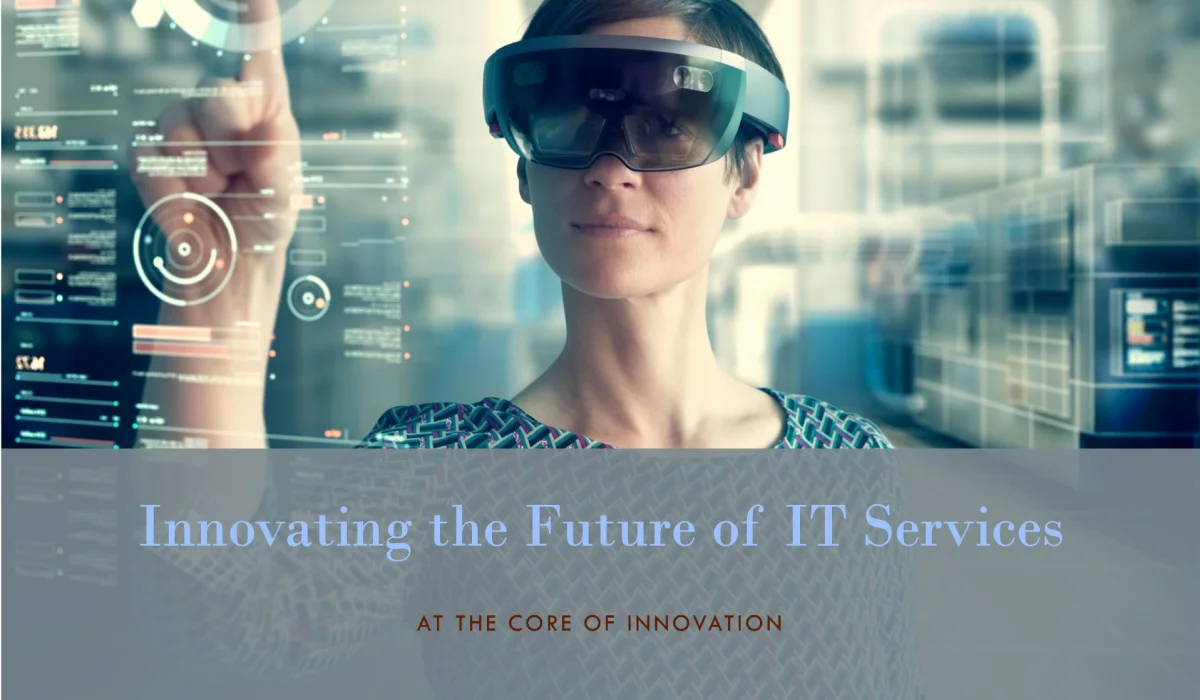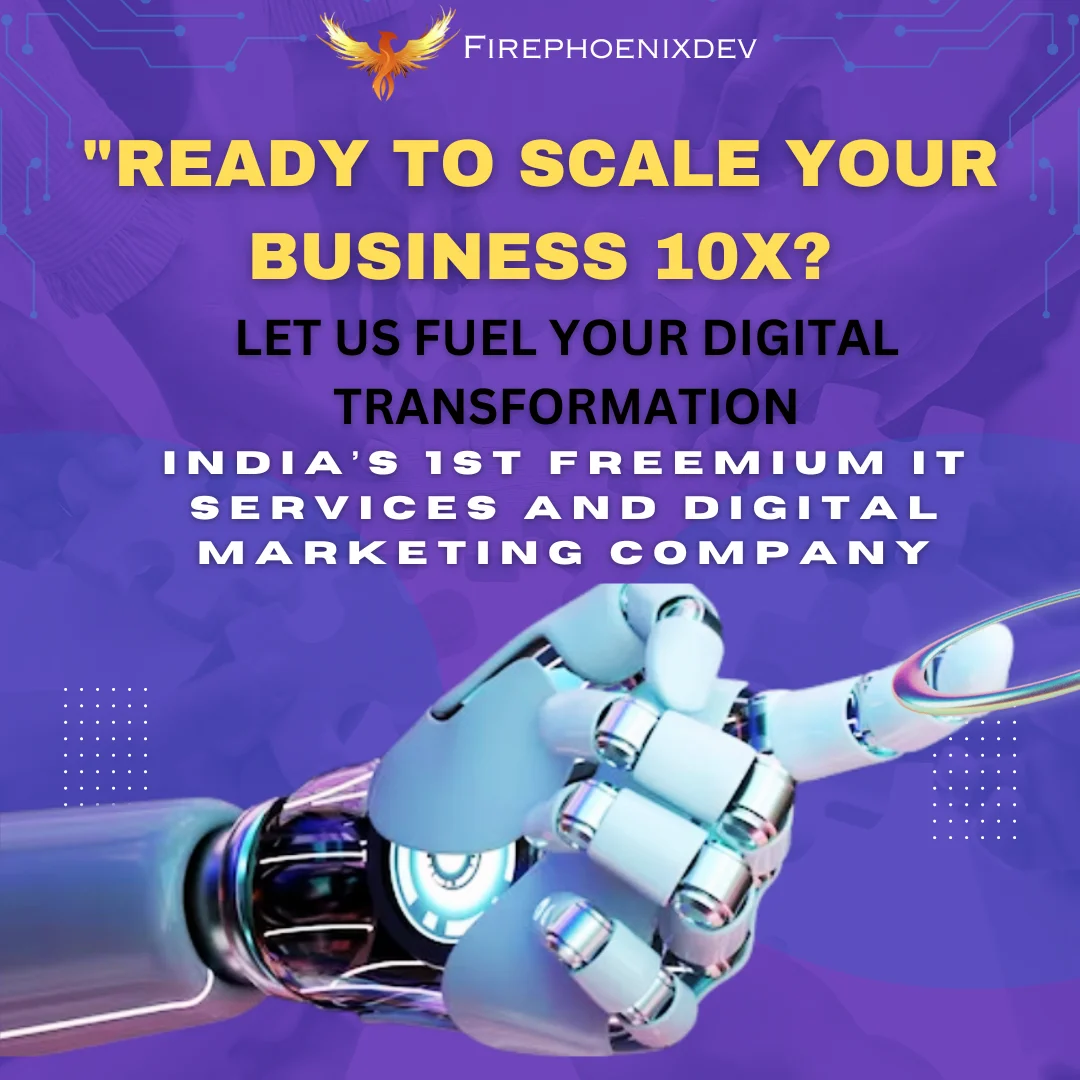
The Future of IT Services: Innovation at Its Core
The future of IT services is set to be driven by continuous innovation, as technology evolves rapidly to meet the changing needs of businesses and consumers. Here's how innovation will shape the future of IT services:
1. Artificial Intelligence and Machine Learning
- AI-Powered Automation: AI and machine learning will continue to revolutionize IT services by automating complex processes, from customer support chatbots to predictive maintenance of IT infrastructure.
- Intelligent Decision-Making: AI-driven analytics will enable businesses to make more informed decisions by providing deeper insights into data, leading to more strategic and effective IT solutions.
2. Cloud Computing and Edge Computing
- Hybrid Cloud Solutions: The future will see greater adoption of hybrid cloud environments, combining public and private clouds to offer more flexible, scalable, and cost-effective IT services.
- Edge Computing: As IoT devices proliferate, edge computing will become increasingly important, processing data closer to where it is generated, reducing latency, and improving real-time decision-making.
3. Cybersecurity Innovations
- Zero Trust Architecture: The rise of zero trust security models, where no one is trusted by default, will reshape how IT services approach cybersecurity, ensuring that systems are more resilient against threats.
- AI in Cybersecurity: AI will play a critical role in identifying and responding to cyber threats in real-time, enhancing the ability of IT services to protect sensitive data and systems.
4. Data-Driven Services
- Big Data and Analytics: The demand for data-driven insights will grow, with IT services increasingly focused on managing and analyzing large datasets to provide actionable business intelligence.
- Data Privacy and Governance: As data becomes more valuable, IT services will need to prioritize data privacy and governance, ensuring compliance with regulations and building trust with customers.
5. Digital Transformation and Automation
- Process Automation: Robotic Process Automation (RPA) and AI-driven automation will continue to transform IT services by streamlining workflows and reducing manual intervention.
- Digital Ecosystems: IT services will increasingly support the creation of interconnected digital ecosystems, enabling seamless collaboration between businesses, customers, and partners.
6. Quantum Computing
- Quantum Innovation: Though still in its early stages, quantum computing has the potential to revolutionize IT services by solving complex problems that are beyond the capabilities of classical computers, particularly in areas like cryptography and optimization.
7. 5G and Connectivity
- Enhanced Connectivity: The rollout of 5G networks will enhance connectivity, enabling faster data transfer, reduced latency, and the growth of new IT services, particularly in IoT and smart city applications.
- Real-Time Applications: Improved connectivity will support the development of real-time applications, from autonomous vehicles to remote healthcare, driving innovation in IT services.
8. Sustainable IT Practices
- Green IT: As sustainability becomes a priority, IT services will focus on reducing energy consumption and carbon footprints through more efficient data centers, renewable energy, and sustainable IT practices.
- Circular Economy in IT: The future of IT services will include a shift towards a circular economy model, where hardware is reused, refurbished, and recycled, reducing waste and promoting sustainability.
9. Human-Centered IT Services
- User Experience (UX) Focus: The future of IT services will place a greater emphasis on delivering superior user experiences, with services designed around the needs and preferences of users.
- Personalization: AI and data analytics will enable more personalized IT services, tailoring solutions to individual user needs and enhancing overall satisfaction.
10. Blockchain and Decentralization
- Blockchain Integration: Blockchain technology will continue to influence IT services, particularly in areas like secure data sharing, digital identity verification, and supply chain transparency.
- Decentralized IT Services: The move towards decentralization, driven by blockchain and peer-to-peer technologies, will create new models for IT service delivery, reducing reliance on centralized platforms.
Conclusion
Innovation will be at the core of the future of IT services, driving advancements in AI, cloud computing, cybersecurity, and more. As businesses and technology continue to evolve, IT services will play a critical role in enabling digital transformation, improving efficiency, and creating new opportunities.

